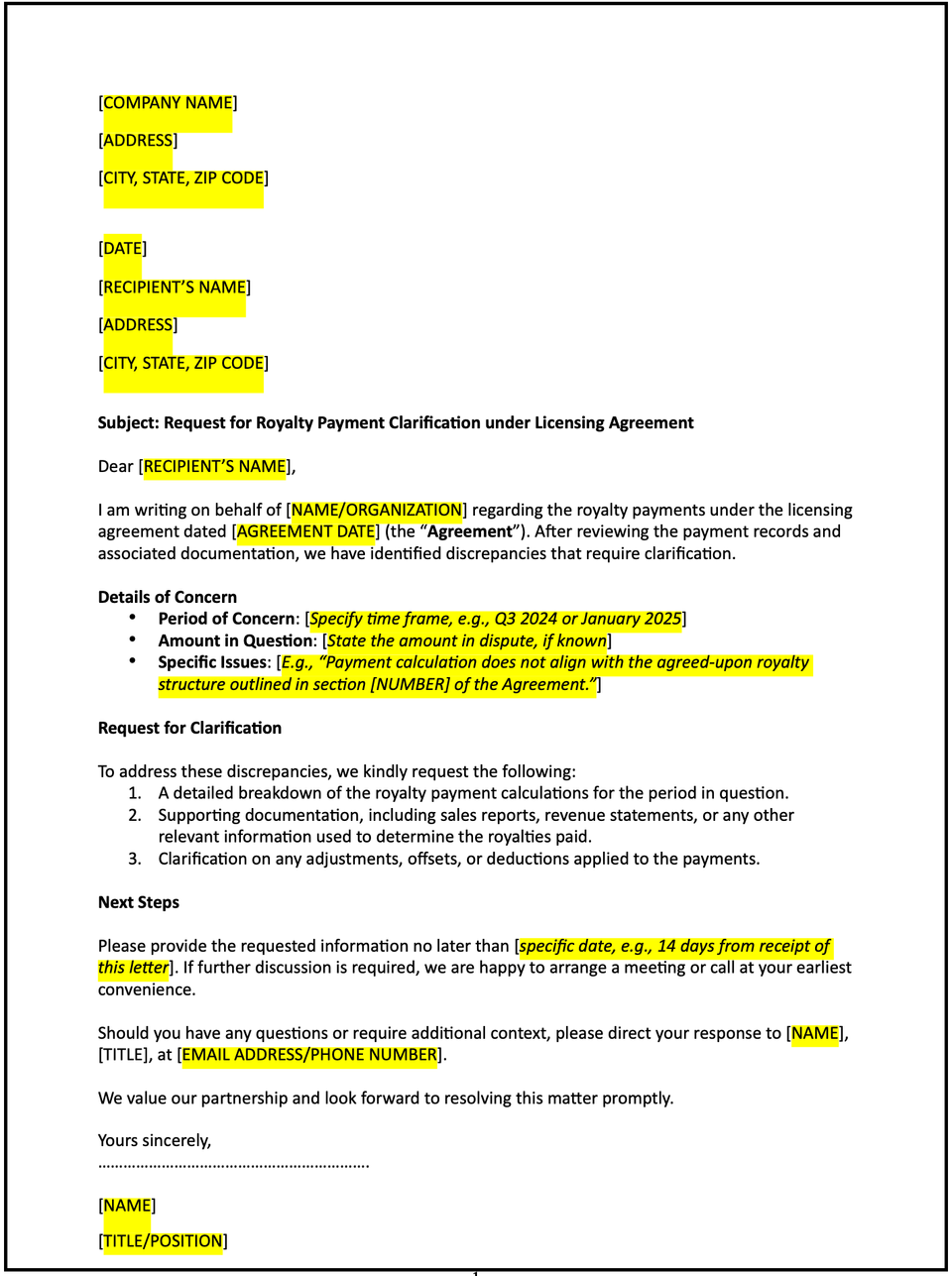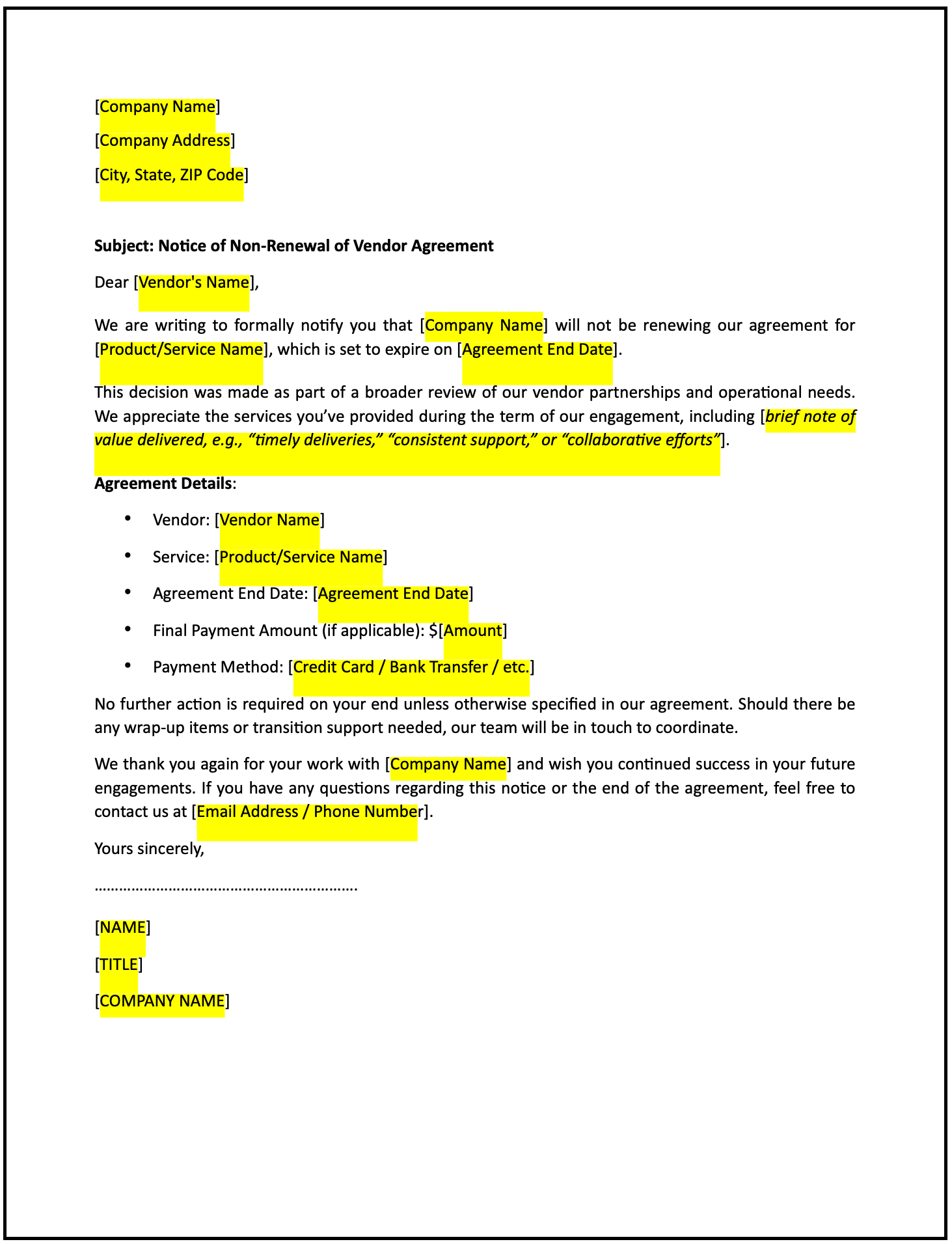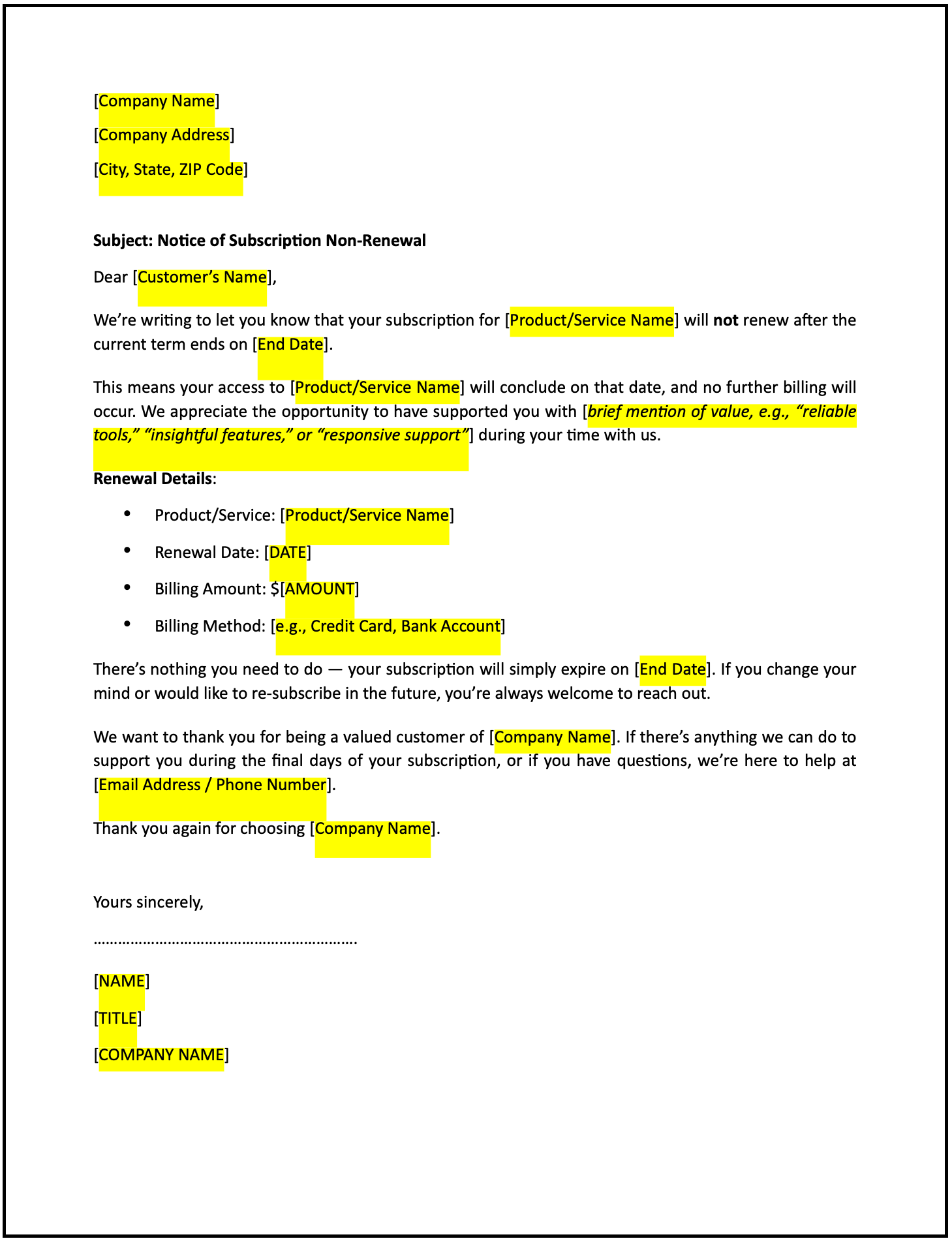Royalty payment clarification letter: Free template

Royalty payment clarification letter
A royalty payment clarification letter under a licensing agreement is a formal communication used to seek details or explanations regarding the calculation, timing, or distribution of royalty payments outlined in the agreement. This letter ensures transparency and promotes mutual understanding between the licensor and licensee.
How to use this royalty payment clarification letter
- Open with an introduction: Address the recipient respectfully and reference the specific licensing agreement, including its title or date.
- State the purpose: Clearly communicate your intent to seek clarification about the royalty payments.
- Identify the area of concern: Specify the aspects requiring clarification, such as the calculation method, payment schedule, or reporting format.
- Provide context: Briefly explain why the clarification is necessary, such as addressing discrepancies, ensuring compliance, or confirming mutual understanding.
- Request specific information: Formally ask for the details needed to resolve the issue, such as supporting documentation, detailed calculations, or explanations.
- Offer collaboration: Reassure the recipient of your willingness to discuss the matter further and resolve any misunderstandings amicably.
- Maintain a professional tone: Ensure the letter is respectful and focused on fostering cooperation.
- Provide contact information: Include details for the recipient to respond or discuss the matter further.
Benefits of using a royalty payment clarification letter
This letter ensures a structured and professional way to address concerns about royalty payments while fostering trust and collaboration.
- Promotes clarity: Clearly communicating the request ensures mutual understanding of payment terms.
- Reflects professionalism: A well-crafted letter demonstrates respect and adherence to the agreement.
- Encourages transparency: Seeking clarification fosters open communication and accountability.
- Builds trust: Transparent dialogue reinforces a positive business relationship.
- Supports compliance: Ensuring clarity helps both parties fulfill their contractual obligations effectively.
Tips for writing an effective royalty payment clarification letter
- Be specific: Clearly describe the royalty-related details requiring clarification, such as calculations, reports, or timelines.
- Use professional language: Maintain a respectful and constructive tone to foster collaboration.
- Provide context: Briefly explain why the clarification is important, such as addressing discrepancies or ensuring accurate payments.
- Highlight mutual benefits: Emphasize how resolving the matter benefits both parties, such as avoiding disputes and ensuring accurate reporting.
- Include actionable steps: Share instructions for responding, such as providing documentation or scheduling a discussion.
- Keep it concise: Focus on the essential points while ensuring the tone is professional and engaging.
Frequently asked questions (FAQs)
Q: What details should I include in this letter?
A: Include references to the licensing agreement, the royalty payment concerns, and the specific information being requested.
Q: Should I personalize the letter?
A: Yes, addressing the recipient by name and referencing specific agreement details demonstrates attentiveness and professionalism.
Q: Who typically sends this letter?
A: Licensees, licensors, or their legal or finance teams typically send this letter.
Q: How formal should this letter be?
A: The tone should be professional, respectful, and focused on fostering collaboration.
Q: When should this letter be sent?
A: Send the letter promptly after identifying concerns or discrepancies to ensure timely resolution.
Q: Can this letter include proposed solutions?
A: Yes, suggesting ways to address the concerns can help expedite resolution.
Q: Is acknowledgment from the recipient required?
A: While not mandatory, requesting acknowledgment ensures the recipient understands and is addressing the request.
This article contains general legal information and does not contain legal advice. Cobrief is not a law firm or a substitute for an attorney or law firm. The law is complex and changes often. For legal advice, please ask a lawyer.


